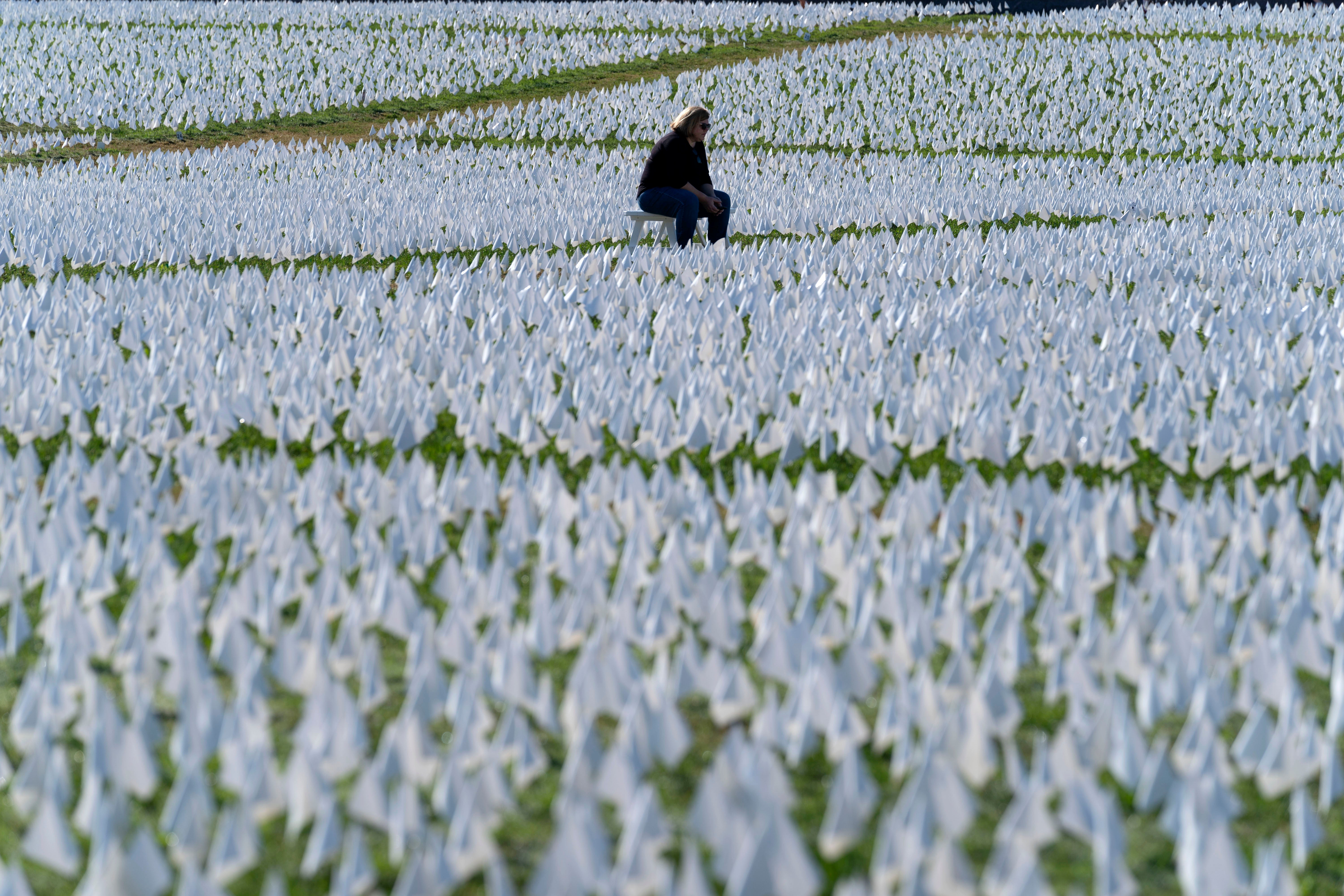‘Hidden’ crisis: 1 in 500 US children lost parent or caregiver during coronavirus pandemic, study finds
More than 140,000 children experienced coronavirus-related loss of a parent or caregiver, fueling calls to put children’s long-term care at the forefront of the public health response
Your support helps us to tell the story
From reproductive rights to climate change to Big Tech, The Independent is on the ground when the story is developing. Whether it's investigating the financials of Elon Musk's pro-Trump PAC or producing our latest documentary, 'The A Word', which shines a light on the American women fighting for reproductive rights, we know how important it is to parse out the facts from the messaging.
At such a critical moment in US history, we need reporters on the ground. Your donation allows us to keep sending journalists to speak to both sides of the story.
The Independent is trusted by Americans across the entire political spectrum. And unlike many other quality news outlets, we choose not to lock Americans out of our reporting and analysis with paywalls. We believe quality journalism should be available to everyone, paid for by those who can afford it.
Your support makes all the difference.The parents or caregivers of hundreds of thousands of children in the US died from Covid-19 or related illnesses, marking a sharp rise in the number of orphaned children experiencing intensified trauma and loss during the coronavirus pandemic.
Within the 16 months from the outset of the pandemic in March 2020 to June 2021, about one in every 500 children in the US experienced the loss of at least one parent or caregiver, provoking profound long-term impacts on their health and well-being, according to a study published on 7 October in the journal Pediatrics.
A child loses a parent or caregiver for every four Covid-19-related deaths, according to the study, pointing to a “secondary” pandemic effect underscoring its long shadow and an “urgent” need to put their care into the public health response.
Findings determined that roughly 140,000 children experienced the Covid-19-related death of a primary or secondary caregiver within the last year. More than 120,000 children experienced the death of a primary caregiver, including a parent or grandparent, and more than 22,000 children saw the death of a secondary caregiver.
The study was done in collaboration with the US Centers for Disease Control and Prevention, Imperial College London, Harvard University, Oxford University, and the University of Cape Town, South Africa.
It reveals vast disparities by race and ethnicity – more than 91,000 children in racial or ethnic minority groups experienced the death of a primary caregiver, far more than the roughly 51,000 white children who experienced similar loss.
The ratio of loss is especially acute among Indigineous children – one out of 168 American Indian children experienced the death of a parent or caregiver. That ratio is one to 310 for Black children, compared to one out of 753 for white children, echoing similarly disproportionate rates of infection and death among people of colour.
“The Covid-19 pandemic has thrown into sharp contrast the social and health disparities in disease occurrence, severity, and outcomes between geographies, and racial and ethnic groups,” according to the report.
“Structural and social determinants of health, such as discrimination, neighborhood environment, barriers in access to healthcare, occupation, educational gaps, economic instability, living arrangements and unstable housing” have exacerbated disparate health outcomes, impacting children “who face immediate and life-long consequences of losing a caregiver responsible for their needs and nurture,” according to the report.

The report’s findings “suggest an immediate need to integrate care for children” into the public health response to the pandemic, including the creation of a “care for children” pillar to current programming.
“Children facing orphanhood as a result of Covid is a hidden, global pandemic that has sadly not spared the United States,” said Susan Hillis, a researcher with the US Centers for Disease Control and Prevention and a lead author of the study.
“All of us – especially our children – will feel the serious immediate and long-term impact of this problem for generations to come,” she said. “Addressing the loss that these children have experienced – and continue to experience – must be one of our top priorities, and it must be woven into all aspects of our emergency response, both now and in the post-pandemic future.”
More than 700,000 people in the US have died from Covid-19, according to the CDC.
The magnitude of loss and its impact on young people “is a sobering reminder of the devastating impact of the past 18 months,” said Dr Alexandra Blenkinsop of Imperial College London. “These findings really highlight those children who have been left most vulnerable by the pandemic, and where additional resources should be directed.”
Join our commenting forum
Join thought-provoking conversations, follow other Independent readers and see their replies
Comments